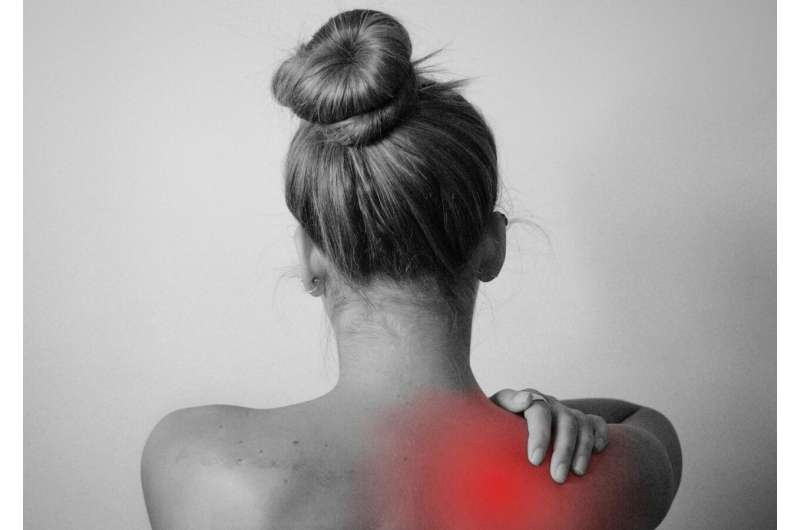This article has been reviewed according to Science X's editorial process and policies. Editors have highlighted the following attributes while ensuring the content's credibility:
fact-checked
peer-reviewed publication
trusted source
proofread
No benefit of physiotherapy over general advice after dislocated shoulder: Clinical trial

Routinely referring patients to a tailored program of physiotherapy after a dislocated shoulder is no better than a single session of advice, supporting materials and the option to self-refer to physiotherapy, finds a clinical trial published by The BMJ today. The findings should help clinicians and patients have informed discussions about the best approach to non-operative rehabilitation, say the researchers.
The shoulder is the most frequently dislocated joint, with rates highest in men aged 16-20 years (805 per 100,000 person years) due to sporting injuries and in women aged 61-70 years (28 per 100,000 person years) due to falls.
Non-operative management is the most common treatment after a first dislocation. This can range from an advice sheet only to a program of individually tailored physiotherapy over several months, but no previous trial evidence is available to inform the best approach.
To explore this further, researchers set out to assess the effects of two rehabilitation interventions in adults with a first time traumatic shoulder dislocation at 40 NHS hospitals across the UK between November 2018 and March 2022.
All participants (66% male; average age 45 years) initially had their arm supported in a sling and received a physiotherapy advice session within six weeks of their injury, which included a shoulder examination plus advice and support materials to aid self-management.
After this session, 240 participants were randomly assigned to advice only (no further treatment) and 242 were offered additional physiotherapy sessions, each lasting for up to 30 minutes over four months.
The main measure of interest was shoulder function on the Oxford shoulder instability score (a 0-48 point scale) reported by patients after six months.
No clinically relevant differences in shoulder scores were found between the two groups at six months or in other measures, including a questionnaire on physical function of the arm, shoulder and hand. Complications were also similar across the two groups
This is the largest trial on the topic to date, although the researchers acknowledge that just over a quarter of participants did not follow up. However, further analysis, accounting for missing data, gave similar results, providing reassurance that the conclusions are robust.
As such the researchers say, until now, no strong evidence was available to guide rehabilitation management following an initial two weeks support in a sling, stating, "We now know an additional program of individually tailored physiotherapy is not superior to advice, supporting materials, and an option to self-refer to physiotherapy.
"Knowing that an individually tailored program of physiotherapy is not superior will enable clinicians and patients to have evidenced informed discussions about the best approach to non-operative rehabilitation," they conclude.
This randomized clinical trial was well planned, executed, and reported, say researchers in a linked editorial. The results show that physiotherapy-led rehabilitation, including generalized range of movement and strengthening exercises (mainly below shoulder height), plus patient advice, confers minimal advantage over advice and education alone. However, they say caution is needed when extrapolating these results, particularly concerning younger patients wishing to return to sports, occupations, or activities with high shoulder loads.
More information: Acute rehabilitation following traumatic anterior shoulder dislocation (ARTISAN): pragmatic, multicentre, randomised controlled trial, The BMJ (2024). DOI: 10.1136/bmj-2023-076925


















